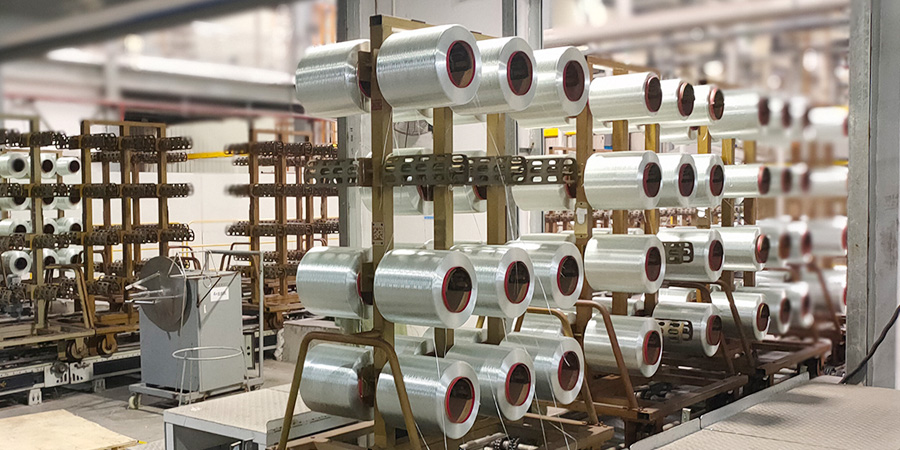Alkali-neutral and alkali-free glass fibers are two common types of fiberglass materials with some differences in properties and applications.
Moderate alkali glass fiber (E glass fiber):
The chemical composition contains moderate amounts of alkali metal oxides, such as sodium oxide and potassium oxide.
Has a high resistance to high temperatures, generally withstanding temperatures up to 1000°C.
Has good electrical insulation properties and corrosion resistance.
Commonly used in construction materials, electronic and electrical engineering, aerospace and other fields.
Alkali-Free Glass Fiber (C Glass Fiber):
The chemical composition does not contain alkali metal oxides.
It has high alkali and corrosion resistance and is suitable for alkaline environments.
Relatively low resistance at high temperatures, usually can withstand high temperatures of about 700°C.
It is mainly used in chemical industry, environmental protection, ships and other fields.
E-glass has higher tensile strength than C-glass, better reinforcement for the griding wheels.
E-glass has higher Elongation, it will help to reduce the glass fiber abrasive cutting ratio during the forming process of the grinding wheels when it in a high stress.
E-glasss has higher volumn density, around 3% volumn smaller in the same weight. increase the abrasive dosage and improve the grinding effiiciency & result of grinding wheels
E-glass has better properties on humidity resistance, water resistance & aging resistance, strengthen the weatherability of fiberglass discs & extend the gurantee period of the grinding wheels.
Element Comparison between C-glass & E-glass
|
Element |
Si02 | Al2O3 | Fe2O | CaO | MgO | K2O | Na2O | B2O3 | TiO2 | other |
|
C-glass |
67% | 6.2% | 9.5% | 4.2% |
12% |
1.1% |
||||
| E-glass | 54.18% | 13.53% | 0.29% | 22.55% | 0.97% | 0.1% | 0.28% | 6.42% | 0.54% |
1.14% |
Comparison between C-glass & E-glass
| Mechanical Performance |
Density (g/cm3) |
Aging Resistance |
Water Resistance |
Humidity Resistance |
||||
| Tensile Strength (MPa) | Elastic Modulus (GPa) | Elongation (%) | Weightlessness (mg) | Alkali out (mg) |
RH100% (strength lossing in 7 days) (%) |
|||
| C-glass | 2650 | 69 | 3.84 | 2.5 | General | 25.8 | 9.9 | 20% |
| E-glass | 3058 | 72 | 4.25 | 2.57 | Better | 20.98 | 4.1 | 5% |
In summary, both medium-alkali (C-glass) and non-alkali (E-glass) glass fibers have their own unique advantages and applications. C glass has excellent chemical resistance, while E glass has excellent mechanical properties and electrical insulation. Understanding the differences between these two types of fiberglass is critical to selecting the most appropriate material for a specific application, ensuring optimal performance and durability.
Post time: Apr-18-2024





